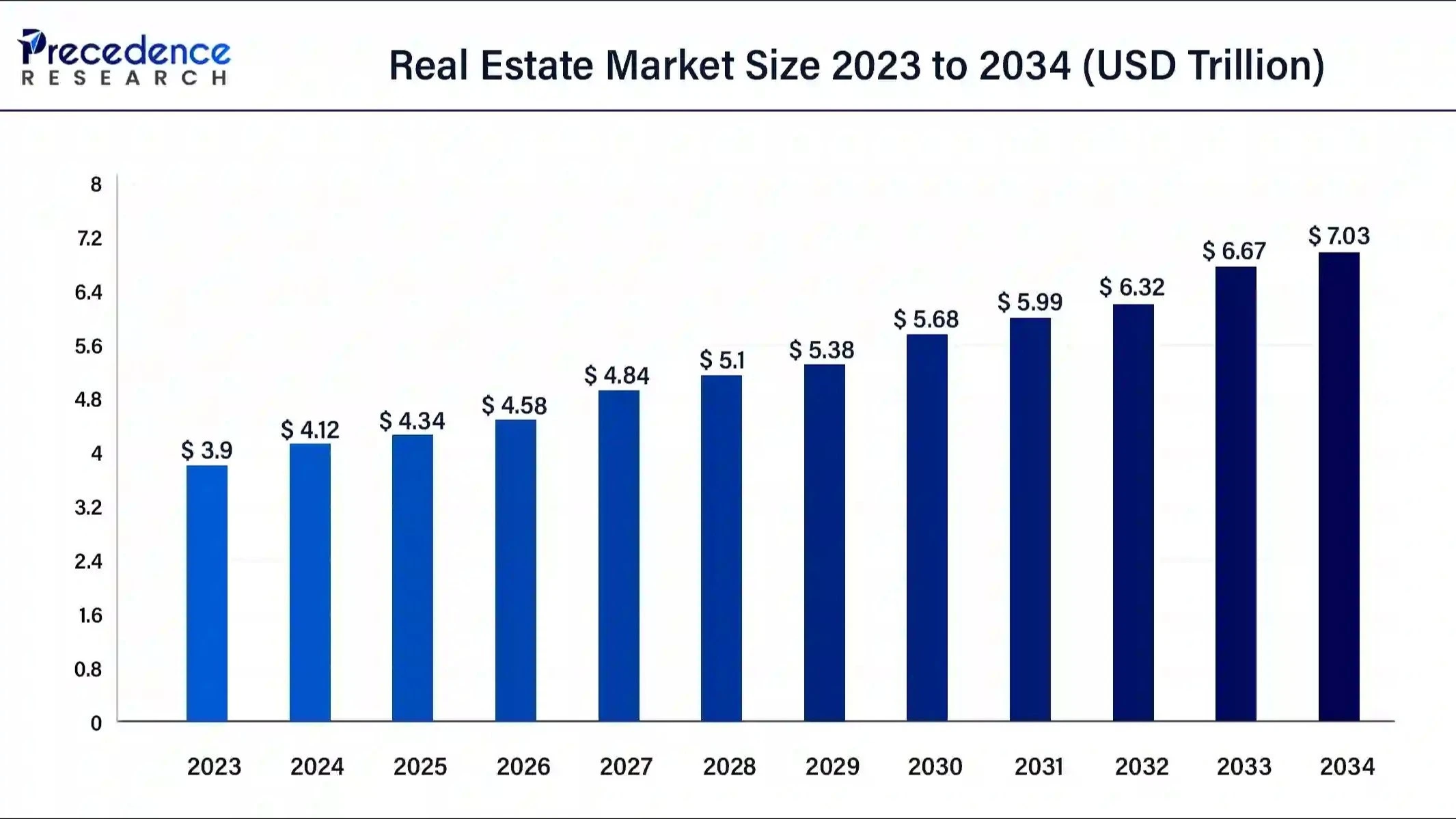Global real estate market to reach $4.7trn by 2023

The global market for Real Estate was estimated at US$3.8 Trillion in 2023 and is projected to reach US$4.7 Trillion by 2030, growing at a CAGR of 3.3 percent from 2023 to 2030.
This is according to the new report published yesterday by ResearchAndMarkets.com, the world's leading source for international market research reports and market data
Gain insights into the U.S. market, which was valued at $1.1 trillion in 2023, and China, forecasted to grow at an impressive 5.1 percent CAGR to reach $817.7 Billion by 2030.
According to the report, technological innovations are dramatically reshaping the real estate industry, enhancing everything from property management to buying and selling processes.
The rise of PropTech (property technology) is enabling real estate professionals to use data analytics, virtual tours, and AI-driven platforms to offer more personalized and efficient services. Virtual reality (VR) and augmented reality (AR) technologies are revolutionizing property viewing, allowing potential buyers and renters to explore properties remotely.
Additionally, smart building technologies are improving energy efficiency and security in both commercial and residential properties, aligning with the growing demand for sustainable real estate solutions.
These technological advancements are making the real estate industry more accessible and efficient.
Several key trends are shaping the real estate sector, particularly the shift toward urbanization and the growing demand for sustainable and energy-efficient properties.
In many parts of the world, the demand for affordable housing is increasing as populations move to urban centers in search of economic opportunities. This is driving both government initiatives and private sector investments in large-scale residential projects.
Additionally, the rise of remote work and flexible office arrangements is transforming the commercial real estate market, with demand for co-working spaces and smart office solutions on the rise.
The push for sustainability in construction and property management is also driving innovations in green building practices and energy-efficient designs.
The growth in the real estate market is driven by several factors, including rising urbanization and population growth, which are fueling demand for residential and commercial properties.
Technological advancements in PropTech, including data analytics, virtual reality, and smart building solutions, are enhancing property management and sales processes, making real estate transactions more efficient and transparent.
The increasing focus on sustainability and energy efficiency is driving demand for green buildings and eco-friendly developments.
Additionally, the rise of remote work is reshaping the commercial real estate landscape, with growing interest in flexible office spaces and smart building solutions.
These factors, combined with real estate's role as a key investment asset, are contributing to the sector's continued expansion.
Major global investors are increasingly diversifying their portfolios by investing in real estate across various regions. Institutional investors, such as pension funds and insurance companies, are actively seeking stable, income-generating properties.
However, Rising interest rates, especially in major economies like the U.S., have affected mortgage rates, making home buying more expensive. This has led to a slowdown in some residential markets, with potential buyers delaying purchases or seeking affordable alternatives.
Top Headlines
© 2024 IPPMEDIA.COM. ALL RIGHTS RESERVED

























